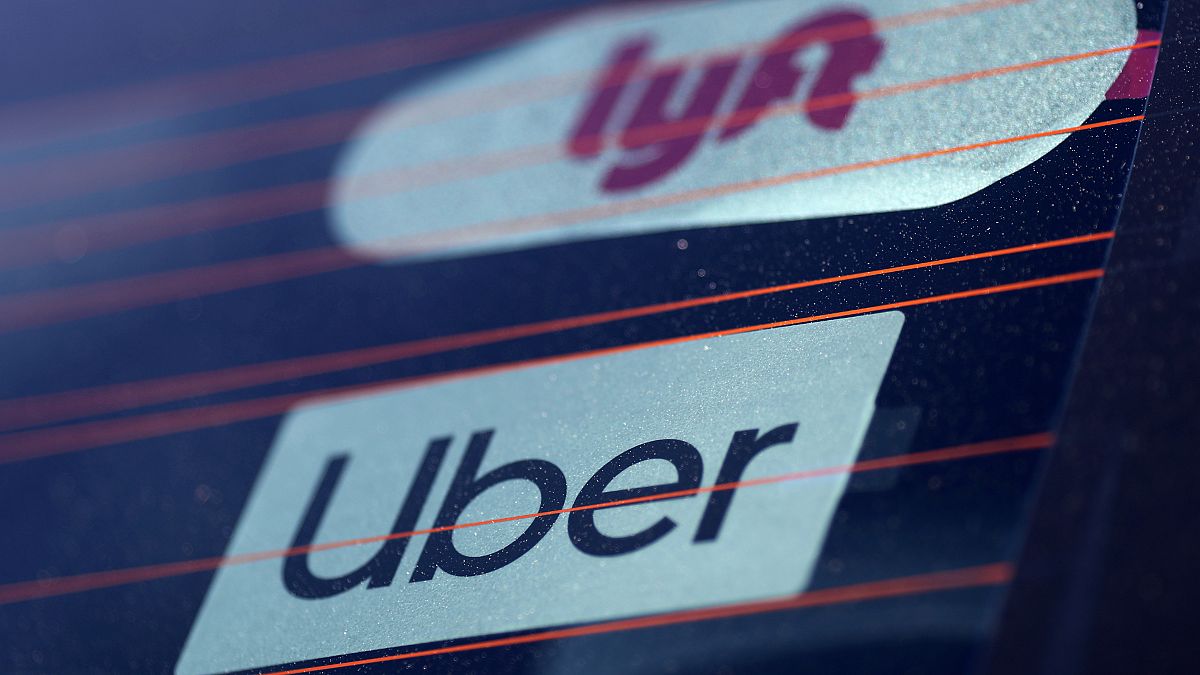California legislators passed landmark legislation that could redefine what it means to work for apps like Uber and Lyft.
California legislators passed landmark legislation that could redefine what it means to work for apps like Uber and Lyft.
The legislation, called AB 5 and approved on September 11, will mean independent contractors being able to enjoy the benefits of employees.
It targets people who work in the "gig economy" or an industry that relies on temporary, zero contract workers.
Workers for apps like Uber may be entitled to new benefits once the bill is signed into law by California Governor Gavin Newsom.
These benefits could allow workers for these apps to claim health insurance, a minimum wage and overtime pay.
But the bill uses a three-step test that limits which "gig economy" workers would be considered under the law and it is still uncertain if Uber drivers will fall under this category.
“That legal test, called the ‘ABC test,’ certainly sets a higher bar for companies to demonstrate that independent workers are indeed independent,” said Tony West, Uber’s Chief Legal Officer.
“Under that three-part test … a company must prove that contractors are doing work ‘outside the usual course’ of its business.
“But just because the test is hard does not mean we will not be able to pass it.
“Several previous rulings have found that drivers’ work is outside the usual course of Uber’s business, which is serving as a technology platform for several different types of digital marketplaces.”
Regulating Uber in Europe
Uber has successfully worked around regulation in the past, especially in areas outside the United States.
Countries within the EU have had attempting to ban or regulate the app since it was first launched on the continent in Paris in 2011.
Because of this, the app works differently from one European country to another.
This year, Uber services were suspended in Barcelona after the city introduced new taxi regulations, such as a mandatory 15-minute wait before taxi drivers can pick up clients in the city.
The app was banned in Italy in 2017 after protests by taxi unions, who argued the app was "anti-competitive".
However, the ban was eventually partially lifted in May of that year, allowing only licenced drivers to use UberX in the country.
Uber was also temporarily banned in London in 2018 because of "public safety" concerns. The city argued it was not properly training its drivers to deal with safety concerns.
The ban was lifted in June of that year when they were given a temporary 15-month license to operate in the city with the promise to make the app safer.
Germany is also well known for its fights with Uber.
In 2015, Uber left every German city except Berlin and Munich because of the country’s strict regulation for taxi drivers.
However, three years later in 2018, the company returned to several more cities after partnering up with existing taxi companies.
This way Uber was able to work within the country without fitting Germany’s bureaucratic requirements themselves.
How people have responded
Despite the uncertainty of the effect the law will have on the "gig economy", many people have already come out in support of the legislation and what it may mean for workers.
“Corporate America has made a lot of money by treating millions of workers as independent contractors, denying them the basic legal protections enjoyed by employees," said a New York Times opinion piece. “California is now on the verge of taking an important step to curb that sham.”
Elizabeth Warren, US senator for Massachusetts, said: “This is a crucial moment in the fight for workers in this country, and it’s time for us to show whose side we’re on.
“All Democrats need to stand up and say—without dodging or weaving—we support AB 5 and back full employee status for gig workers.”
Bernie Sanders, the US senator for Vermont, said: “Uber’s drivers are employees, not independent contractors. Large corporations will do anything to get out of paying workers a decent wage and offering them good benefits.”
The California Labor Federation, an organisation in California that fights for workers’ rights, said in a statement: “AB 5 is a powerful counter to the corporate greed and rampant exploitation that’s driving inequality across our state in emerging and traditional industries, alike.
“This historic victory clears the way for the bill to become law, setting workers and their families on a path to a better future and ending abuses that are all-too-common.”
